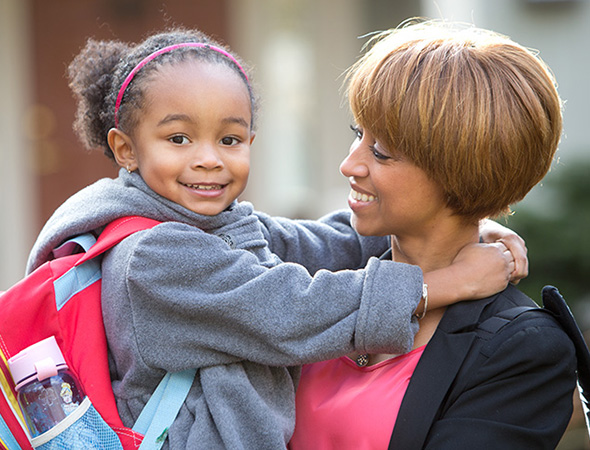Have you ever wondered about how to prepare your child for preschool?
If you do, this article will show you 10 things to do when preparing your child for preschool in Nigeria.
Let’s jump right into it!

#1. Prime for Potty Training
First thing first, before selecting a preschool in Nigeria, ask about the potty training policy. If independent toileting is required, carefully consider if your child is developmentally ready to be potty trained.
If he or she is not, don’t force it. But if your child is able to keep the diaper dry for an hour, then he or she is likely ready to begin training. A good preschool should be willing to assist you in the toilet training process.
#2. Plan more social activities
All preschool children have to get along with other kids, so one of the things you should do when preparing your child for school is to ensure your child spends much time in a group with other children. Help your child get used to being part of a group by arranging playmates with one or two peers or enrolling him or her in music or tumbling class.
#3. Develop Social Skills
Social readiness, not academic readiness, should be a priority. Going to preschool is about socialization. When thinking about preschool, consider these questions: Can your child be away from you? Is he or she moving out of diapers? Is he or she talking about school?
Start teaching manners early, so that your child knows the appropriate words at the time to start preschool. Greeting others, following directions – and saying please, thank you, and excuse me – are ways a child shows respect. Your child’s teacher will be impressed if your child has these manners.
#4. Cultivate Communication Skills
Talking and listening are extremely valuable for school success, and parents have countless opportunities to develop their child’s language skills. Whether it’s discussing what’s in a room, talking about daily routines, or chatting about what’s for dinner, parents can help expand a child’s vocabulary by introducing new words and expressions.
Also, preschool teachers often encourage their busy young pupils to sit still and listen. You can prepare your child for this by occasionally asking him or her to sit quietly; then ask him or her to close the eyes and ask the different sounds he or she hears.
Talk about what’s making the sounds and where the sounds are coming from. In preschool, children also learn to listen and follow directions that involve more than one step. Start asking your child to do a series of things such as take his shoes to his room and put them in the closet. Or go to the bathroom and wash his hands and then come and help you set the dinner table.
#5. Give a sense of what to expect
Resist the temptation to say things like “It’ll be the most fun you’ve ever had,” or “There’s nothing to be afraid of”; never belittle your child’s fears or concerns. Instead, help calm his or her fears with information.
Talk about what to expect when he or she gets to the school — where he or she will be going, what he or she will be doing, and who will be in class with him or her. This will help get your child ready for school.
#6. Talking to other children
99% of children’s worries in the first week in school are that they don’t have any friends yet. Most kids are fantastic at playing with new people anyway, but there are some who are very shy. Therefore, it is important to train your child on how to establish rapport with other children.
Encourage your child to talk to other children by looking at their eyes, smiling and asking what their names are and introducing himself or herself.
#7. Visit the school together
When preparing your child for school it’s important to visit the school together and ask to be shown the places that are really important to your child, including where to get snacks and even the toilets. Knowing where the toilets and sinks are has been the number one concern of most children.
#8. Meet the Teacher
It is important you meet your child’s teacher. If possible, meet the teacher together and encourage your child to say hello and share a few personal information. This will help your child build confidence in the teacher also.
Let your child share a special toy or talk about why he or she loves swimming. Ask simple questions about the school day and what sorts of things your child will be doing in the settling in period.
#9. Encourage speaking to teachers when worried
Children get upset about lost coats, a missing drawing, a child who knocked them over accidentally etc. Teachers can resolve these problems if the children let them know. Encourage your child to speak up to the teachers when in worries in the school.
#10. Come up with a good-bye ritual
If it is the first time your child will be away from you, he or she may worry that you’re not coming back to pick him or her up. Invent a special parting ritual — such as a high-five, or saying something like, “I’ll be back to get you soon, long before we see the moon” — that you do each time you drop your child off.
During the first few days, allow extra time to get your child ready and out the door in the morning. The calmer things are at home, the easier the separation will be.

